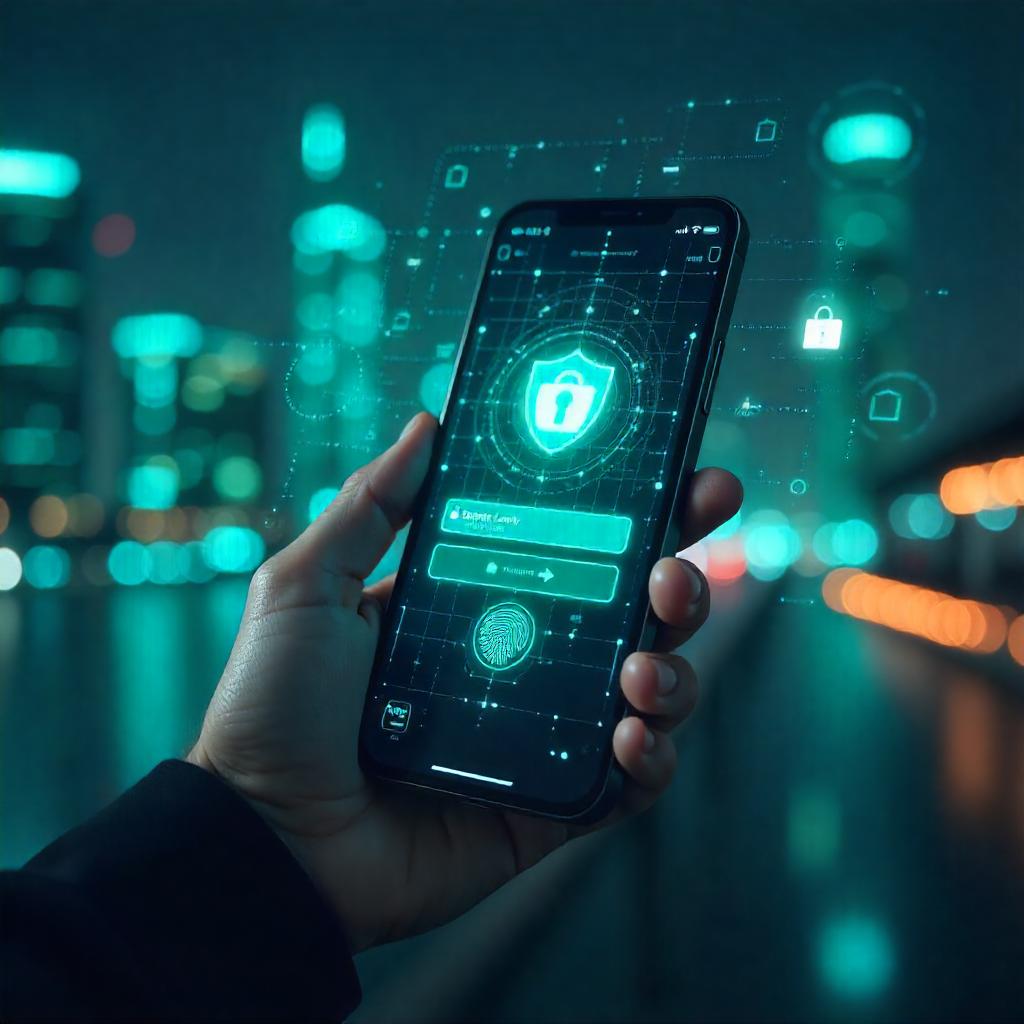Is your smartphone safe from hackers? Learn the top smartphone security tips to protect your phone from threats in 2025.
Be real—how often do you check your smartphone? Probably every few minutes, right? Whether you’re scrolling through Instagram, replying to a Slack message, or tapping to pay for coffee, your phone holds everything. But here’s the kicker: most people don’t think about smartphone security until it’s too late. And yep, that’s exactly why hackers love smartphones—because we forget they’re goldmines of personal data.
But here’s what most of us don’t stop to think about: What if someone else got access to everything on your phone?
Sounds like the start of a Netflix thriller, right? Nope. It’s just Tuesday for a hacker.
A friend of mine—let’s call her Maya—left her phone unattended in a quiet little café. Two hours later? Her PayPal was empty, banking apps compromised, and her email was flooded with password reset attempts. No screen lock. No backups. Nada. Watching her panic-sob into a lukewarm cappuccino while desperately resetting passwords on a borrowed laptop? Not a vibe.
Our phones aren’t just phones anymore. They’re vaults. And a lot of us are leaving the front door wide open with a sign that says “Come on in!”

Why Hackers Are Basically Obsessed with Your Phone
Here’s what’s sitting inside most of our phones:
Banking details
Work emails (with way too much sensitive stuff, let’s be real)
Access to every social media account we’ve ever made
Saved passwords, autofill credit cards
Private photos, notes, and messages you’d rather not be leaked
So yeah—it’s not just about someone stealing fifty bucks. It’s about someone hijacking your entire digital life.
And get this: with over 6.8 billion smartphone users out there, hackers don’t need to go after a bank. They just need someone like… well, us—on a careless day. One slip, one click, and boom. They’re in.
how to increase smartphone security from hackers in 2025

- Lock Your Phone using pin code
Protect your phone from hackers by using smartphone security option in setting. Use pattern or pin code password.Use face unlock or fingerprint ID—the good kind, not the ones that freak out in bad lighting.
Go for a strong PIN (and no, “696969” isn’t strong).
Set your phone to auto-lock in under 30 seconds. Quicker is better.
- Keep Software Updates from time to time
They’re Not Just About Emojis
I get it. “Remind me later” is my default too. But those updates often patch serious vulnerabilities. Like, the kind hackers are already exploiting.
Enable auto-updates and don’t snooze them forever.
If it says “security patch,” treat it like a smoke alarm. Handle it now.
- Use public wifi with care it is risky
Look, I’ve checked my email in a coffee shop too. But it’s also where hackers set up fake networks with names like “FreeCafeWiFi123.” Cozy, right?
Don’t log in to sensitive stuff on public networks—especially not banking.
If you must, use a VPN. They’re not just for tech nerds anymore.
Turn off auto-connect so your phone doesn’t betray you while you’re sipping your latte.
⚠️ Story time: A guy I know logged into his work account from a hotel lobby. Next day, three clients got “urgent” invoice emails… from him. Except he didn’t send them. Yikes.
- Only download apps you truly trust
That flashlight app that wants access to your contacts? Yeah, that’s sus.
Stick to official app stores—even then, read the reviews.
Ask yourself: why does a calculator need my GPS?
Avoid apps with sketchy names like “SuperFastBatteryPro99.”Thats why do not use unknown apps which increase smartphone security risk
- Backups Are Your Safety Net
Boring, But Life-Saving
If your phone explodes (metaphorically… hopefully), can you recover your stuff?
Use Google Drive, iCloud, or anything reliable for phone data protection.
Check your settings. No, seriously—go check now.
Automate backups at night or while charging. Set it and forget it.
- Enable Two-Factor Authentication (2FA)
It’s Your Digital Guard Dog
Even if a hacker cracks your password, 2FA makes sure they’re stuck at the front gate without a key.
Start with your email and bank.
Use an authenticator app—texts are okay, but not ideal.
Think of it like this: a password is your door lock. 2FA? That’s your angry dog that doesn’t like strangers.
- Watch out for fake links in messages
Nowdays fake link message is used for stealing your mobile data. Dont click the links from unknown persons especially from unknown numbers.
If it sounds too dramatic (“FINAL WARNING!”), it’s probably fake.
When in doubt, go directly to the website—not through that janky text.
- Install a Mobile Security App
Good antivirus apps for phones exist—and they’re actually useful.Go with something trusted: Bitdefender, Avast, Lookout. There are various mobile security app available that makes smartphone security better.
These help with malware, suspicious apps, bad Wi-Fi… all the stuff you didn’t know was a problem.
- Clean up your phone ditch the apps you don’t use
some still run in the background.
Uninstall stuff you don’t use anymore.
Revoke permissions from apps that shouldn’t still be snooping.
Honestly, do you still need that meditation app you opened twice?
- Teach Your Family & Friends
You’re Only as Safe as Your Group Chat
It’s not just about your habits. If your kid clicks a scam link on your shared tablet, guess what? You’re all in trouble. Give proper training and knowledge from time to time related with smartphone security
Have a “hey, let’s talk phone safety for 5 mins” moment.
Keep it simple—no geek speak.
Lead by example. Be the cybersecurity champion of your house. 🛡️
📲 For Business Owners: You’re Not Too Small to Be a Target
Hackers love small businesses. Why? Because most don’t have a security team—or any plan at all.
The Soft Spots:
Employees mixing personal and work stuff on their phones.
Fake “IT support” phishing attacks.
Phones running Android 9 in the year 2025.
What You Can Do (Without Losing Your Mind):
Enforce device encryption and strong passwords across the board.
Use Mobile Device Management (MDM) to track, lock, or wipe company devices.
Run a short cyber hygiene session—even 30 minutes makes a difference.
👀 Final Thought: Be Paranoid—But Just a Smidge
You don’t need to become a cybersecurity ninja overnight. But a few good habits? They might just save your bacon one day.
Start with these today for smartphone security:
- Turn on 2FA
- Install a VPN and try it once this week
- Make sure your backups aren’t just “on”—make sure they’re actually working
Your phone is basically your life in your pocket. Treat it like the crown jewels—not like an old sock. Because yeah, the hackers are getting smarter…
…but so can you.
FAQ smartphone security
Q1: How do I make my phone more secure?
A: First—use a password that isn’t “0000.” Obvious, I know, but you’d be surprised. Add 2FA, keep your software updated (yes, even when you’re “busy”), and please don’t hop on sketchy Wi-Fi without a VPN. My roommate once did that at a motel—next thing you know, her Instagram was pushing crypto scams.
Q2: What’s the most secure phone?
A: iPhones are super locked down—Face ID, tight app control, the whole thing. But newer Androids (like Pixels or Samsung with Knox) are solid too if you don’t ignore the privacy settings. My friend nerded out over a phone that doesn’t even use Google. Bit much for me, but hey—privacy king.
Q3: Can public Wi-Fi really get your phone hacked?
A: Oh yeah. Ever seen “Free Starbucks Wi-Fi” and clicked without thinking? Classic trap. A guy at my coworking space once did that—boom, all his files gone. Use a VPN or just wait ’til you’re home.
Q4: Do I need antivirus on my phone?
A: Depends. If you’re just scrolling Insta and using the Play Store, probably not. But if you’re downloading weird apps or love sketchy mods like my cousin does? Yeah, get a decent mobile security app. Better safe than… hacked.